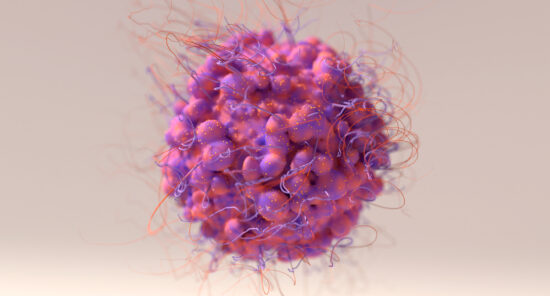Credit: Original article published here.
In a recent meta-analysis, published in Cancer, researchers evaluated neoadjuvant immunotherapy in patients with advanced, resectable non-small cell lung cancer (NSCLC). They sought to characterize the safety and efficacy of neoadjuvant immunotherapy and compare it with chemotherapy alone.
According to the study’s lead author, Yajing Wu, pooled data of 66 studies suggested that neoadjuvant immunotherapy was safe and effective, and it improved pathologic response rate and survival compared with chemotherapy alone—especially in patients who were positive for programmed cell death ligand-1 (PD-L1) expression.
Neoadjuvant Immunotherapy Improves Chemotherapy in Advanced NSCLC
The investigators selected 8 randomized controlled trials, 39 prospective nonrandomized trials, and 19 retrospective trials for analysis. All participants had resectable stage I-III NSCLC and received PD-L1, programmed death 1, or cytotoxic T-lymphocyte-associated antigen-4 inhibitors before resection.
A Mantel-Haenszel fixed- or random-effect model was used depending on the variable heterogeneity. Authors noted other forms of neoadjuvant and adjuvant therapies were not excluded.
According to the report, the overall pooled pathologic complete response rate was 28.1% and the estimated rate of grade ≥3 toxicities was 18.0%. Compared to patients who received chemotherapy alone, those who received neoadjuvant immunotherapy had improvements in:
- complete response (odds ratio [OR], 7.63; 95% CI, 4.49-12.97; P<.001),
- progression-free survival (hazard ratio [HR], 0.51; 95% CI, 0.38-0.67; P<.001), and
- overall survival (HR, 0.51; 95% CI, 0.36-0.74; P=.0003)
Toxicity rates were reportedly similar between the groups (OR, 1.01; 95% CI, 0.67-1.52; P=.97). Authors also added that the results were consistent after removing all retrospective data on NSCLC from the analyses.
In addition, a complete response was associated with improved progression-free survival (HR, 0.25; 95% CI, 0.15-0.43; P<.001) and overall survival (HR, 0.26; 95% CI, 0.10-0.67; P=.005), and patients with PD-L1 expression were more likely to achieve a pathologic complete response (OR, 2.93; 95% CI, 1.22-7.03; P=.02).
Overall, the authors suggested that, “Compared with chemotherapy alone, chemoimmunotherapy improved pathologic response rates and survival, particularly for patients who had tumors that expressed programmed cell death ligand-1, without increasing toxicities.”
Related: Gefitinib With or Without Chemotherapy in NSCLC


